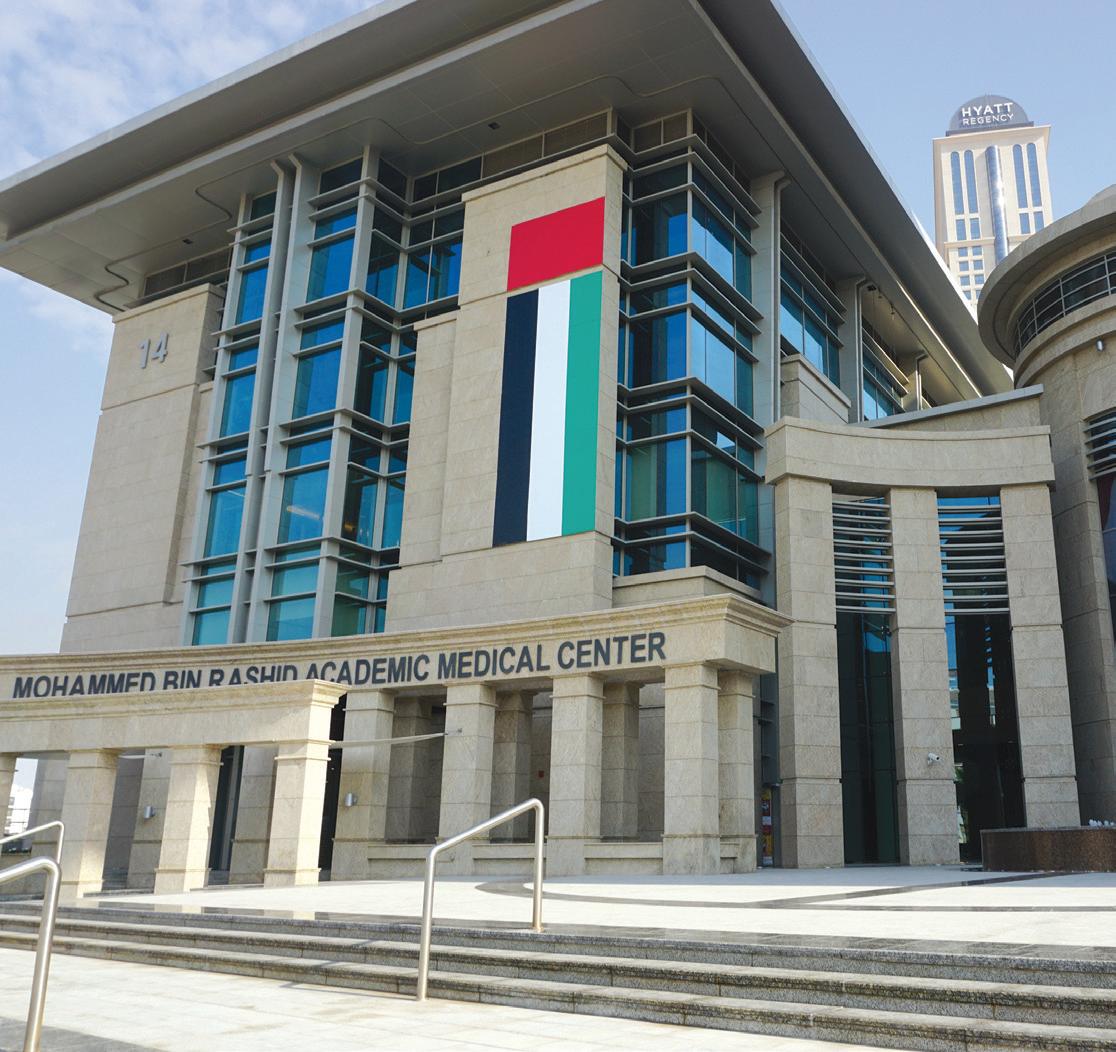Big Bytes
d
HEALTH FOR ALL: The Mohammed Bin Rashid Academic Medical Center within Dubai Healthcare City is made up of a medical university, a medical library, and a medical simulation center.
HMS welcomes new Department of Biomedical Informatics
Foundation of Care New center in Dubai will focus on community health a cooperative agreement signed in January by HMS and the Dubai Healthcare City Authority not only established the HMS Center for Global Health DeliveryDubai but also signaled support for the center’s mission: to increase local and regional health delivery research capacity, and, by extension, improve the health of the people living in Dubai and throughout the United Arab Emirates. The new health research and training center will address some of the more pressing health challenges in Dubai and the region, expanding Dubai’s role as a global hub for scientific and policy discussions related to health care deliv-
ery. Funding for the center will be provided by a fouryear grant from the Dubai Harvard Foundation for Medical Research. “We are privileged to partner with our colleagues in Dubai to generate best practices in global health delivery and to transform these practices into improved health outcomes in Dubai, the region, and the world,” said Jeffrey S. Flier, HMS dean. The new center, directed by Salmaan Keshavjee, an HMS associate professor of global health and social medicine and director of the Program in Infectious Disease and Social Change in the Department of Global Health and Social Medicine, will be based at the Mohammed Bin
Rashid Academic Medical Center in Dubai Healthcare City, a medical center campus. Her Excellency Raja Al Gurg, vice-chairperson of Dubai Healthcare City Authority, attended the signing ceremony. “The work of the center,” she said, “will support our long-term commitment to improving the health of all communities within Dubai and enhance our opportunities to lead the region in advancing health care research and delivery.” The new center will allow HMS, working with researchers and care providers from the health authorities in the UAE, to stimulate research and education aimed at improving health care capacity in such areas as surgical outcomes, treatments for diabetes and obesity, treatments for infectious diseases such as tuberculosis and hepatitis C, and mental health disorders. The activities of the center also aim to strengthen the research environment in Dubai, the UAE, and the region and to contribute to regional social and economic development. The center will expand training capabilities for regional faculty and students but will not provide patient care. —Stephanie Dutchen
MATTIDAVI LING
EFFECTIVE JULY 1, HMS will add a new Quad-based department to its roster. The establishment of this new entity, the Department of Biomedical Informatics, will, according to HMS Dean Jeffrey S. Flier, emphasize the vital role the field of bioinformatics has at HMS and underscore the prominent role the School has played in the field’s development throughout the past half century. The department’s inaugural chair will be Isaac Kohane, director of the Countway Library of Medicine, the HMS Lawrence J. Henderson Professor of Pediatrics at Boston Children’s Hospital, and codirector of the Center for Biomedical Informatics (CBMI), the institutional predecessor to the new department. In 2014, CBMI, led by Kohane and Alexa McCray, an HMS associate professor of medicine at Beth Israel Deaconess Medical Center, brought in an array of federal grants that funded the establishment of large research collaborations among scientists on the Quad, at affiliated hospitals, and in the Harvard University Faculty of Arts and Sciences. In his announcement, Flier explained why biomedical informatics is integral to contemporary medical research when he noted that “the field represents two converging communities: one involving health care-related data, and the other addressing the study of health and disease at molecular and naturally occurring systems level.” Mastering the surge in biomedical data streams goes beyond storage and computation. It includes developing and applying new methods for both research and clinical care. Central to the department’s mission will be addressing methodological, engineering, and educational challenges. CBMI already has a strong history of education through its involvement in master’s- and doctoral-level programs. The new department will continue to expand this commitment to education. It will launch with five core faculty members who are now associated with CBMI, and recruits will be added in the coming years to achieve representation from across the field.
6 harvard medicine ~ spring 2015
05-11 Pulse.Benchb.indd 6
5/11/15 10:53 AM












